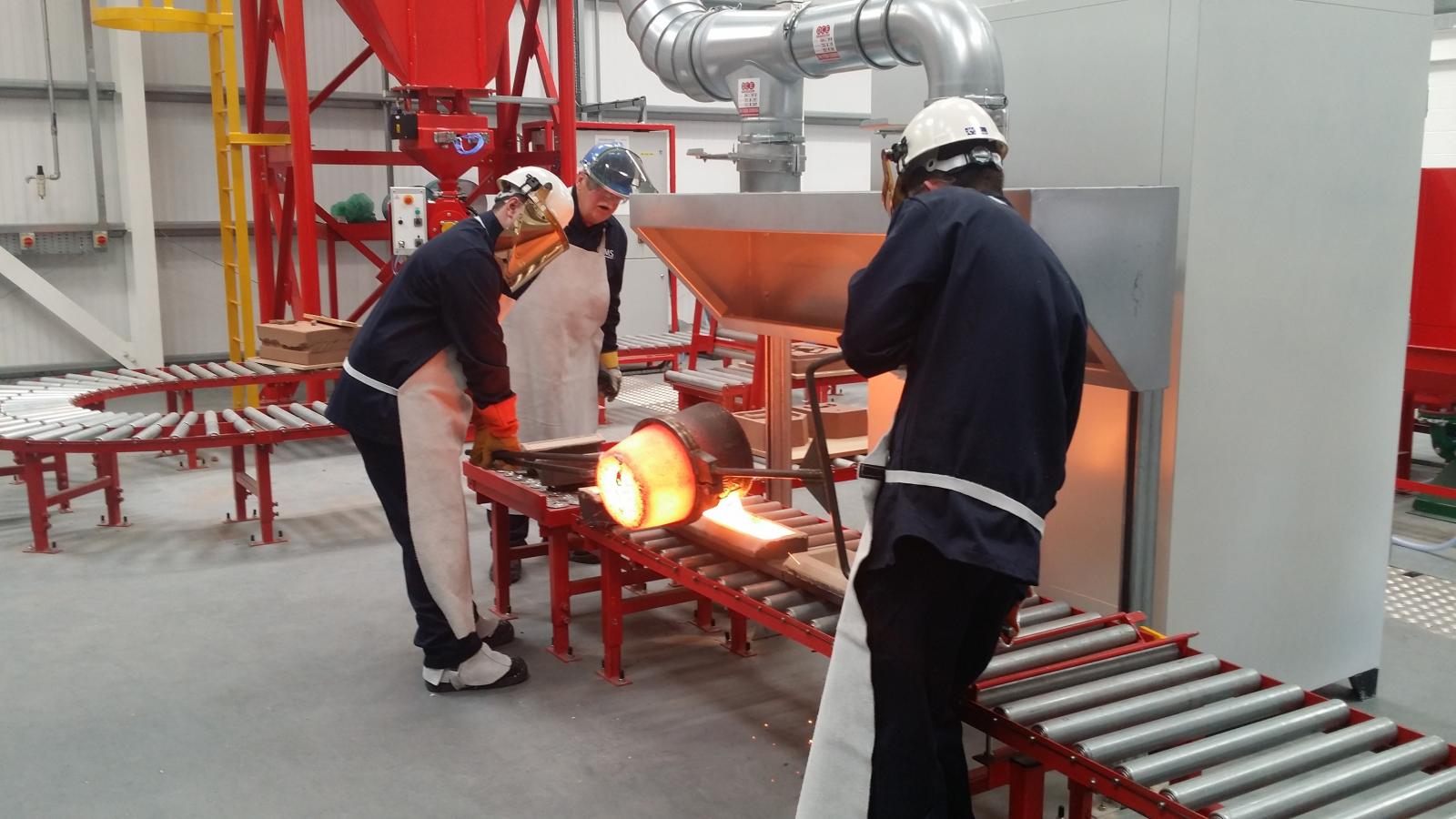
Pam Murrell FICME, CEO of the Cast Metals Federation, CMF, describes the challenges that smaller, niche industry sectors face when trying to develop the specialist training programmes that they need. The casting industry tackled the problem through the industry bodies taking a lead role.
The skills challenge faced by many industry sectors is well known and the castings industry is no different. Colleges and training providers offer a range of engineering/manufacturing programmes, including apprenticeships, but these are often, and necessarily, more generic, to appeal to a wide range of sectors in order to achieve a critical mass of learner numbers. They aim to provide broad underpinning engineering and manufacturing skills. These programmes are not able to offer employers from the more niche and specialist sectors the specific skills required.
For the casting & foundry industry, some of these specific skills areas include moulding & coremaking (to understand binder chemistry and how to create complex core assemblies), toolmaking and die design, methoding (to design of the way in which the metal will enter the mould cavity), metallurgy (melt preparation & alloying) and foundry patternmaking. These need specialist equipment and specific expertise to teach them.
Yet the need for such training programmes exists as Adam Vicary, CEO of Castings plc explains. “Why should the industry not have access to relevant funded programmes using the levy, rather than making do with programmes that do not actually meet our skills needs? Companies such as mine need to be able to offer a proper apprenticeship to attract new recruits, and we need the skills in-house to meet the needs of the market”
So how to achieve this for the smaller niche sectors? The Department for Education, through the Skills Funding Agency and the Institute for Apprenticeships, are rightly keen for apprenticeships to be ‘employer-led’ but for a sector dominated by SMEs, how realistic is this?
The casting and foundry industry set about writing its own trailblazer standard at level 3 as soon as this was a possibility, to ensure that there was a relevant standard for our employers to access. The professional body (the Institute of Cast Metals Engineers, ICME) facilitated this, alongside the CMF, providing the secretariat, identifying a lead employer to chair the employer group and submit the application, organised meetings of the steering group and also funding an ‘industry person’ as a per diem contractor to do much of the leg-work to draft the standard.
This was not easy, as none of us were ‘educationalists’ and there was some ‘going round in circles’ with the SFA for a good while in the early days. One of our staff stepped in to facilitate the writing of the End Point Assessment plan as industry people, whilst having the occupational understanding, were not able to sufficiently interpret the SFA guidelines. But the upshot was that industry now has a funded apprentice standard that covers a good part of the industry’s skills needs. But there was a significant in-kind cost to the industry bodies and some of our employers, as well as the very real cost of bought-in expertise.
A new independent training company has since been established (Foundry Training Services Ltd) to deliver the training, with part time tutors recruited from industry and training for them to become instructors, all funded by a loan. There has also been no nationally funded help available for the development of the teaching and learning materials, which has been funded from charity reserves!
Separately the industry (actually the lead bodies in the main) have actively supported the establishment of the National Foundry Training Centre, funded through a local LEP. An employer was willing (and in a position to be able) to make some land available to ‘host’ the new facility, and there were industry suppliers who were keen to support and ‘sponsor’ some of the kit, which was a huge help.
There have been many challenges and difficulties to overcome, not least with getting employers engaged after years of no apprentices and no provision, and there have been significant setbacks along the way. This is a re-build after two decades since the last foundry college closed. But both the professional body and the trade association have promoted and supported this in numerous ways over recent years.
David Bisset of FSE Foundry Ltd says “Without the input from the lead bodies, a company like mine would not be able to access the specific training we need. Foundry and patternmaking courses are not courses that most colleges will be able to offer. Numbers of learners are small, the specialist knowledge does not exist within their teaching staff and learners may be geographically spread. So this creates real challenges. Without the drive and input from the Trade Association and the real financial input from the industry’s Professional Body, the provision would not be where it is today.”
Former student and now Quality Manager at Charter Castings, Sam Edwards, agrees, saying “I have certainly benefited from being able to follow a programme specific to the industry I work in – casting is a complex process with many variables, so having some more formal underpinning knowledge to complement the on the job experiences is in valuable when looking to problem solve”.
Whilst this is not perhaps the pure ideal of ‘employer-led’, the industry bodies have been instrumental in minimising the barriers for their employers - this is a strong argument for the role that industry bodies can play in supporting their industries, but also evidence of some of the challenges that we all face in the more ‘niche’ sectors of the manufacturing sector.